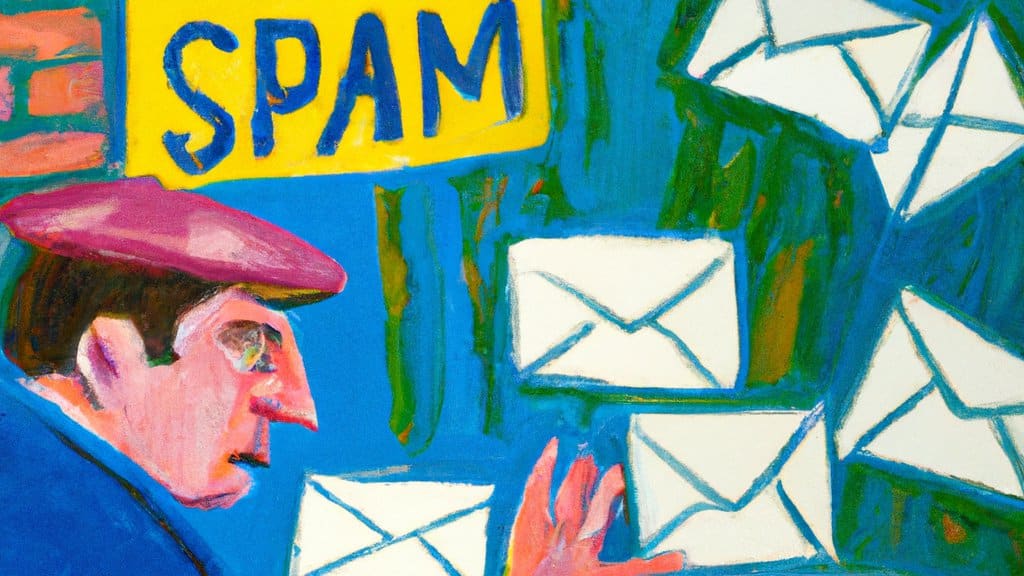There was a time when the digital world was still in its infancy – the world of ARPANET. ARPANET was like an exclusive dinner party for tech nerds, quietly sipping their protocol tea. It eventually evolved into the global carnival that is the Internet today, thanks to the introduction of TCP/IP, the opening of the gates to commercial interests and the public, and the explosive growth fueled by the World Wide Web.
But picture how people operated in the 1970: ARPANET, was primarily a network for academia and the military. Electronic communication was a novel concept, with email being a brand-new phenomenon. Information sharing and sales pitches relied heavily on face-to-face interactions and exclusive dinner parties. If a salesperson needed to sell a computer, he’d have to go door to door or call everyone on the yellow pages. The concept of Email Marketing? It did not exist.
I. Genesis of Email Marketing
In the midst of this, Gary Thuerk, an employee of Digital Equipment Corporation (DEC), took an audacious step. On May 3, 1978, he dispatched an email message to 393 recipients across ARPANET.
The subject line was lengthy, reading, “DIGITAL WILL BE GIVING A PRODUCT PRESENTATION OF THE NEWEST MEMBERS OF THE DECSYSTEM-20 FAMILY.” The content was promotional, announcing DEC’s product presentation and a chance to win a “Green Card.” It was an experiment, a pioneering attempt at mass email marketing.

II. Spam in 1978 and (the Lack of) ARPANET Regulation
Some recipients found it intriguing, while others considered it intrusive — Why the mixed reaction? For starters, this was the first documented case of unsolicited mass email, which would later be coined as “spam.” It was a daring venture into uncharted territory, pushing the boundaries of ARPANET’s primary use for academic and military exchange.
In today’s legal landscape, the “Green Card” email would likely violate several laws and regulations that specifically address email marketing and spam, including CAN-SPAM Act, California Consumer Privacy Act (CCPA), General Data Protection Regulation (GDPR), Telephone Consumer Protection Act (TCPA), Federal Trade Commission (FTC) Guidelines, State Laws, etc.
But ARPANET in 1978 only had thousands of users: it was still a relatively small and an exclusive network compared to the global reach of today’s internet. Most importantly, ARPANET was not properly regulated, and there were no commercial products or services that helped to hold anyone accountable. Although Theurk’s email sparked conversations and raised ethical questions about the limits of email communication and the fine line between marketing and intrusion, there were no legal consequences or actions taken against Thuerk for sending this spam email.

III. An Industry’s Awakening
Yet, this incident was just the beginning. It inadvertently set the stage for what we now know as email marketing, a multibillion-dollar industry. The digital marketing landscape evolved significantly, and as email became more sophisticated, so did the tactics used to reach inboxes.
Unlike the 197os, we are in an era of the Internet today, where stakes are higher than ever:
Email marketing has grown to a prioritized channel for software business and commerce business to reach their audiences, gather feedback, encourage usage, and make a sale. Marketers have to constantly take into account user consent, segmentation, and personalization. Enterprise businesses rely on their internet reputations. Security attackers and malicious actors are more creative than ever, and have more incentives to perform malicious attacks than ever. Mail administrators and security engineers find themselves in a relentless battle to develop anti-spam measures. Laws and regulations were enacted to combat spam and protect consumers. Business have to take significant financial tolls to fix the reputation once it’s been damaged. On top of that, spammy endeavors disrupt people’s workdays, expose them to phishing scams, and generally annoy the living daylights out of them.

IV. The Ongoing Battle Against Spam
Gary Thuerk’s “Green Card” email may have been controversial, but it was a watershed moment in the history of digital marketing and anti-spam products and services. The relentless pursuit of anti-spam measures reflects the critical role that email plays in our lives, both professionally and personally. It also underscores the importance of network security and the need for businesses to invest in protecting their online reputations and their customers from the annoyance and risks posed by spam. In this era of instant global communication, the fight against spam remains a shared responsibility for individuals, organizations, and regulators alike.




